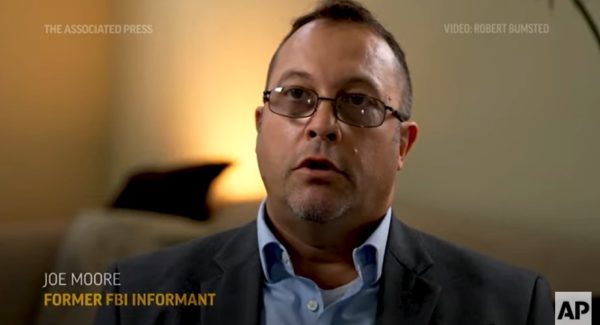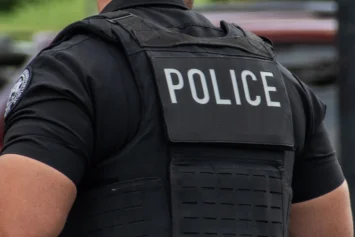A U.S. Army veteran, who spent 10 years undercover in the Ku Klux Klan, said officials need to root out members of the domestic terrorism organization from law enforcement agencies.
Joseph Moore told the Associated Press he infiltrated two Klan organizations in North Florida, where he helped foil two murder plots and unveiled efforts to recruit members for law enforcement positions. Moore was able to help the FBI identify Klansmen that were law enforcement officers in Florida and Georgia.

“If you want to know why people don’t trust the police, it’s because they have a relative or friend that they witness being targeted by an extremist who happens to have a badge and a gun. And I know as a fact that this has occurred. I stopped a murder plot of law enforcement officers,” Moore told AP News.
Among his efforts, Moore stopped a plot by three members of the Florida chapter of Traditionalist American Knights of the Ku Klux Klan to a Black man. The three men were current and former corrections officers among a group of other officer-Klan members at the Reception and Medical Center in Lake Butler, Florida.
When Moore attended Klan meetings, he wore a wire, sometimes captured video, and would often keep a record of license plate numbers registered to law enforcement officers who attended.
Moore said he discovered dozens of police officers, corrections officers, sheriff deputies and other law enforcement officers who were involved with the Klan and outlaw motorcycle clubs. While undercover in the United Northern and Southern Knights of the KKK in North Florida, Moore identified a detention officer with the Alachua County Sheriff’s Office, Wayne Kerschner.
Kerschner, who worked four years at the jail in Gainesville, confirmed his membership in the Klan when he was probed by investigators. He admitted to writing on a KKK blog and defended it as a faith-based organization, FOX News reported. Moore also stopped a ploy by members of that chapter to kill a Hispanic man.
“From where I sat, with the intelligence laid out, I can tell you that none of these agencies have any control over any of it. It is more prevalent and consequential than any of them are willing to admit,” Moore said.
According to the FBI, domestic terrorism is “violent, criminal acts committed by individuals and/or groups to further ideological goals stemming from domestic influences, such as those of a political, religious, social, racial, or environmental nature.”
The FBI has a page that chronicles some of its work in combatting violent activity by the KKK that dates back to 1915.
“White supremacist groups have historically engaged in strategic efforts to infiltrate and recruit from law enforcement,” the FBI wrote. The agency said some in law enforcement were volunteering “professional resources to white supremacist causes with which they sympathize.”
Moore said while undercover, he never adopted the Klan’s racist ideology. He said he refrained from using racial slurs. The AP confirmed they never heard Moore use the derogatory language while reviewing the FBI recordings.
The Florida Department of Corrections has denied claims of wider connections to white supremacist groups or a systemic problem. Department spokeswoman Michelle Glady said every allegation of wrongdoing is investigated by the agency’s inspector general.
“Every day more than 18,000 correctional officers throughout the state work as public servants, committed to the safety of Florida’s communities. They should not be defamed by the isolated actions of three individuals who committed abhorrent and illegal acts several years prior,” the department said in an emailed statement to AP News.
Moore said the department’s statement was inaccurate based on the number of active Klan members he has identified and those applying to the agency.
The FBI has warned about white supremacist groups’ efforts to saturate law enforcement agencies for more than a decade. In a 2006 bulletin, the federal agency warned about “ghost skins,” or hate group members who don’t overtly display their beliefs in order to “blend into society and covertly advance white supremacist causes.”
Moore said he feared for his life on numerous occasions while undercover. Since ending the operation for the FBI, he and his family have adopted new names and live secretive lives for their protection.
He fears the Klan may retaliate against him someday. He told the AP that people connected to the Klan have appeared at his house in recent months. He has beefed up security at his home and carries a gun with him wherever he goes.
Moore, who has pre-existing mental health issues, said he also has to deal with the psychological toll of his encounters during the Klan operation.
“We have had to change our names. We have tried to move, we have had our address placed in confidentiality. However, there are people that have investigative capacities that have tracked us, they’ve uncovered our names,” Moore said.
More news from our partners:


